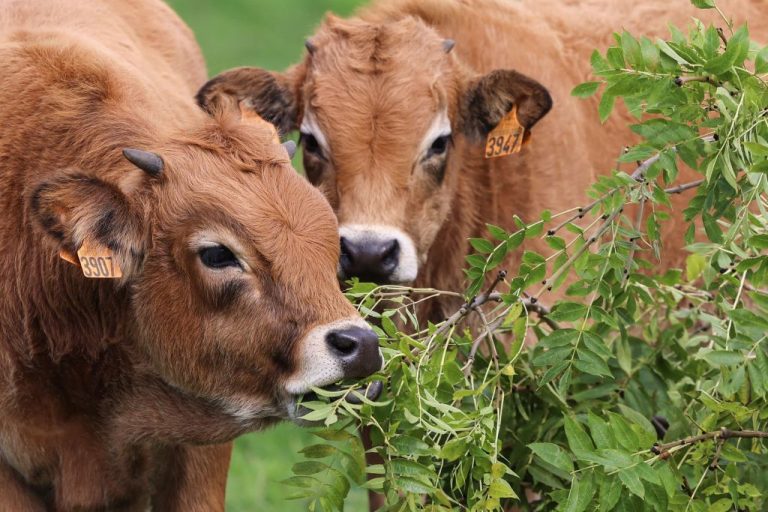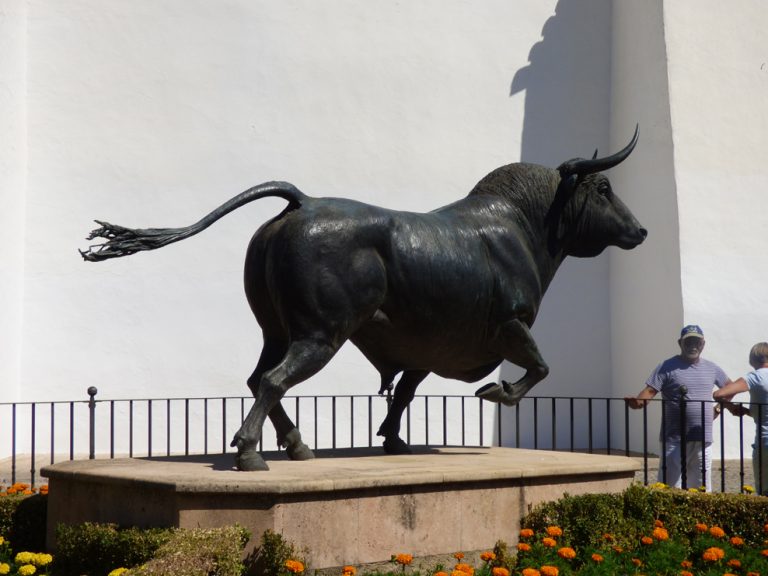A special edition of a scientific journal focusing on the hot topic of meat as a human dietary staple and the livestock farming needed to sustain the practice has come out in full support of meat and livestock as necessary and positive for society and the human body.
Accompanying the special edition of the journal Animal Frontiers published mid-April is The Dublin Declaration, which states its purpose as, “To give voice to the many scientists around the world who research diligently, honestly and successfully in the various disciplines in order to achieve a balanced view of the future of animal agriculture.”
MORE ON FOOD AND LIVING
- Diet Doldrums? Take a Walk on the Wild Side: Wild Edibles Part I
- Make Your Own Pickles and Enjoy the Benefits of Lactic Acid Fermentation
- Ila’s Amazing Chocobites Recipe–A Healthy Treat That’s Easy to Make and Hard to Resist
“Livestock systems must progress on the basis of the highest scientific standards. They are too precious to society to become the victim of simplification, reductionism or zealotry. These systems must continue to be embedded in and have broad approval of society,” the Declaration continues.
Referring to the body of science represented in Animal Frontiers, the Declaration adds, “For that, scientists are asked to provide reliable evidence of their nutrition and health benefits, environmental sustainability, socio-cultural and economic values, as well as for solutions for the many improvements that are needed.”
In the lead article of the journal The Societal Role of Meat—What the Science Says, guest editors Peer Ederer of Switzerland-based GOALSciences at Global Food and Agriculture Network and Frederic Leroy of and Vrije University in Brussels quote Aristotle’s words from 2,300 years ago: “The tame animals are for the use and nourishment of mankind, while the wild ones, if not all, most of them, are on account of nourishment and help, in order that clothes and other tools come to be from these.”
Success
You are now signed up for our newsletter
Success
Check your email to complete sign up
“And therefore, if nature does nothing in vain or without a purpose, it is necessary that nature made all of these on account of humans,” Aristotle stated.
The authors ask, “It is therefore fair for every generation to reask this question considering the best and most recent scientific evidence available: should eating meat in sufficient portions be a common and important part of the standard human diet?”
Based on findings in one of the nine studies published for the special edition, Ederer and Leroy state, “Given that meat represents a high-quality food matrix for digestibility and absorption of a broad spectrum of nutrients, several of which being already limiting factors in diets worldwide, it seems fair to state that the dietary role of meat is not straightforward to replace.”
The statement is critical in light of significant pushes at present to completely eliminate meat from the human diet by groups such as the C40 Cities mayors consortium, an entity connected with the World Economic Forum representing civic leaders from 96 of the world’s largest cities that aspires to eliminate 100 percent of meat consumption from cities.
“In fact, populations that have scant access to meat tend to suffer from the typically expected health problems associated with low intake of specific micronutrients found in meat, or from deficient quality protein intakes,” the duo continues.
They added, “To sum up, the regular consumption of meat appears to bestow multiple and important nutritional benefits.”
The special edition also targeted the question of whether livestock farming is helpful or harmful to the environment. A question they once again found, based on research published for Animal Frontiers, that livestock and farming are overwhelmingly positive for the environment.
The paper states that the desire to return “to a state of Nature nearly untouched by” man must be “dismissed as illusionary, arbitrary, and arguably impossible.”
Editors pointed out that plant-based diets have a flaw in that “plant-based production does not only lead to human-edible food, but also large amounts of inedible biomass.”
Researchers found that animal husbandry actually helps with this issue because “Livestock are the most likely viable option to return the nutrients captured in this biomass back into the natural cycle, while producing high-quality human-edible food.”
Ederer and Leroy also warned in their summary of the special edition that “the outcome of unintended economic, social, and environmental consequences when abandoning livestock could prove catastrophic to the already shaky ecological balance of the resource cycles and the remaining natural capital,”
The journal also tackled the issue of synthetic meat. Italy recently banned synthetic meat, dairy, fish, and poultry in order to protect the country’s world-renowned culinary traditions.
One of the studies composing the edition determined the notion that synthetic meat would be able to replace livestock agriculture either financially or systemically as “far from realistic.”
“The relevant technologies are not new, and their history of several decades of research as well as remaining technological issues suggests it may take considerable time to overcome the hurdles while it is unclear that the cost can be brought down sufficiently to become a viable economic, nutritional, or environmental alternative to farming animals,” the editors summarized.
But the paper also concluded it was “most unlikely” that “the meat sector requires no changes, and that the global livestock and meat industry may continue as it has all along.”
The Dublin Declaration concludes with an excerpt from the Solution Cluster on Sustainable Livestock at the UN Food System Summit 2021:
“Human civilization has been built on livestock from initiating the bronze-age more than 5000 years ago towards being the bedrock of food security for modern societies today. Livestock is the millennial-long-proven method to create healthy nutrition and secure livelihoods, a wisdom deeply embedded in cultural values everywhere. Sustainable livestock will also provide solutions for the additional challenge of today, to stay within the safe operating zone of planet Earth’s boundaries, the only Earth we have.”
















